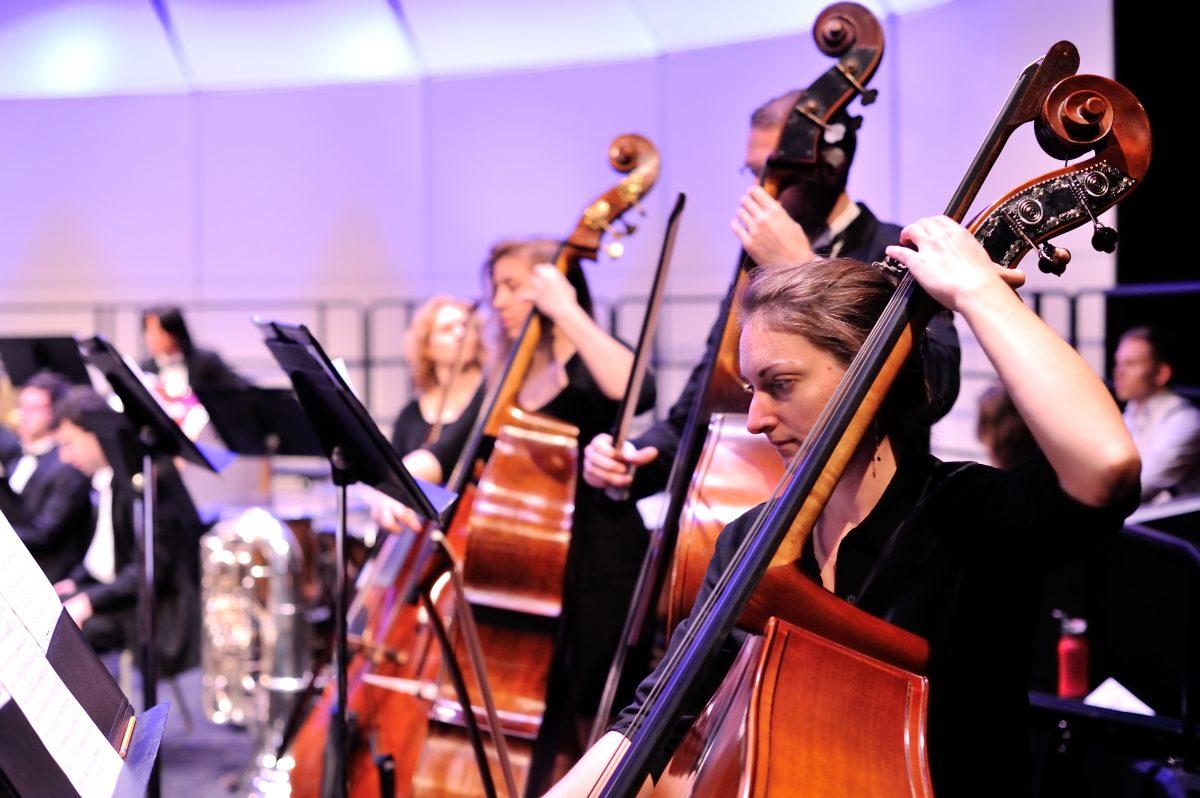The Raleigh Civic Symphony will perform The “Great Animal Orchestra” Sunday, with each piece showcasing animal recordings. The performance will feature five pieces composed by renowned British composer Richard Blackford, and a special piece, “The Green Earth New,” composed by Peter Askim, a Raleigh Civic Symphony conductor and the music director for the NC State’s Music Department.
Blackford composed the pieces based on animal recordings gathered by American ecologist and musician Bernie Krause. Krause spent 40 years traveling the world to collect 5,000 hours of recordings of wild animals.
“Although the ‘Great Animal Orchestra’ premiered in 2014, and has been performed elsewhere before, the performance at the Talley will be the East Coast premiere,” Askim said.
Blackford composed the “Great Animal Orchestra” to raise awareness of the wild animal and the environmental conservation efforts, according to its website. Blackford wanted to show the audience how humans are interrelated to the environment and animals. To do so, he collaborated with Krause.
“The music has ability to touch us on a level that is beyond thought and transcends language and pure information,” Askim said. “I think that will open up the audience to the conservation efforts.”
In addition to raising awareness on wild animal and environmental conservation, the event will combine music and science to show their interrelationship through the Sustainability Showcase. This showcase will begin an hour before the orchestra performance and will include some of the conservation and sustainability efforts made throughout the collaboration.
Right before the pieces are performed, the audience will be greeted by a video from Krause who will discuss the cross-disciplinary collaborative process and the science behind the music.
“The symphony will play the animal recordings via electronic keyboard during the performance to create a dialogue between the recordings and the symphony’s performance,” Askim said.
There are 25 NC State students, undergraduate and graduate, in the Raleigh Symphony who will perform the “Great Animal Orchestra.” Missy Gaddy, who has been the first cellist in the Raleigh Symphony for two years and is a graduate student studying applied mathematics, said the dialogue between the animal recordings and orchestra music made for a new challenge, but that the group was able to figure out the balance.
“The only difficulties we had were technical issues,” Gaddy said. “The pieces we practiced were so integrated with the actual recordings, we had hard time finding balance between them and our own performance.”
After the performance, there will be a panel discussion and Q&A that will complement the orchestra and provide supplementary information about a wide variety of scientific issues.
The panel will host musicians and scientists, including Blackford, Askim and others, who will answer any questions the audience might have, according to Askim. Blackford will also talk about keynotes in his work and the collaborative process he had with Krause.
According to Gaddy, the Raleigh Civic Symphony began rehearsing for this performance this past January. Although this is the first time the Raleigh Symphony is performing the “Great Animal Orchestra,” Gaddy said the members all had a great time practicing the piece.
“Because our symphony is comprised of diverse performers, this added a special quality to the performance.” Askim said. “Our performance will be unique as each symphony and conductor place their individual marks on the interpretation of the piece.”
Gaddy said the Raleigh Civic Symphony’s version of the “Great Animal Orchestra” will be enjoyable for the audience.
“Even though it’s our premiere performance of the ‘Great Animal Orchestra,’ the audience will enjoy it,” Gaddy said. “Not only is it scientifically informative, but the pieces are all aesthetically pleasing too.”








